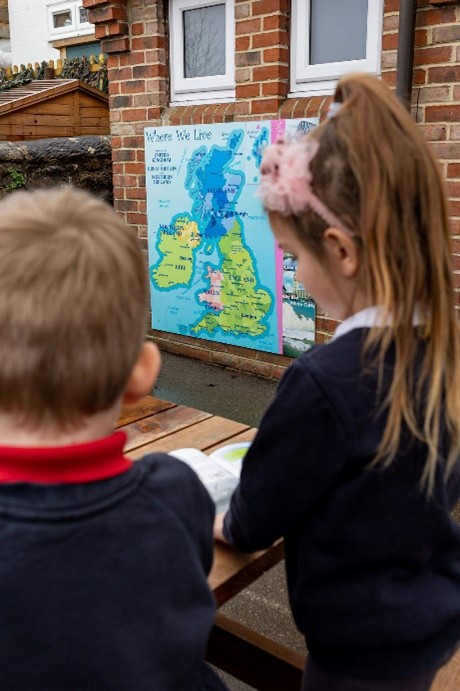Geography ties closely with our school curriculum aims – through it pupils can learn to be change-makers, to be happy and healthy, inquisitive and creative. For this reason, it is our ambition for our pupils to leave Hunton and Arrathorne School with a love of geography which will last them a lifetime.
Through our geography curriculum it is our intent that children will deepen their knowledge, both of the immediate locality and of the wider world. Through carefully chosen key questions they will develop their geographical enquiry skills and gain knowledge which will last them a lifetime.
Furthermore, we have adapted the geography curriculum at our school to be bespoke to the children’s experiences and the geographical location of the school. For example, KS1 children begin by looking at why their local town of Bedale is special, whilst Upper Key Stage 2 children take advantage of our location close to the Yorkshire Dales to answer ‘Why is the Yorkshire Dales a tourist honey-pot?’ When studying localities, comparisons will always be drawn to our specific location – relevant links drawn between key features of North Yorkshire such as the Yorkshire Dales, the North Yorkshire Moors, the Pennines and the history of Jorvik.
It is our aim for children to leave our schools as competent geographers having a broad opportunity to practise skills and a regular diet of fieldwork, the opportunity to experience geography in context and have the fundamental knowledge of the UK and wider world they will need in later life. We also to inspire children as geographers through topics which will engage them such as investigating natural disasters and the impact of tourism. Geography is everywhere!
The Geography subject leader is Gavin Cope.
For further information about our Geography curriculum, please click the link below.
